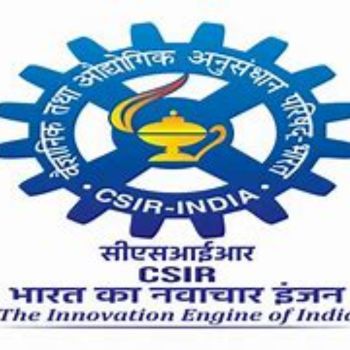A Ph.D in Animal Nutrition is a 3- to 6-year study done at the doctoral level that covers the research on the advanced know-how in the science of feed and nutrition of livestock, poultry, and aquatic animals. The course focuses on nutrition, metabolism, nutrition formulation, biochemistry of nutrition, animal physiology, feed technology, and sustainable management of livestock. Independent research undertaken by students will result in the formulation of new feed supplements, disease mechanisms and strategies, and practices for enhancing the productivity of livestock and animal welfare.
You should have a Master's degree (M.V.Sc. in Animal Nutrition or allied subjects such as Animal Physiology, Veterinary Science, or Dairy Science) with a minimum 55 percent overall mark obtained in a recognized university to become eligible to apply for a Ph.D in Animal Nutrition. The process of admission normally involves entrance tests that are run by the universities or the national level examination, such as that of ICAR AICE-JRF/SRF (PGS), along with an interview and a research proposal.
The fees of the Ph.D program are an average of INR 40,000 – 250,000 per annum, according to the institute. The Indian Veterinary Research Institute (IVRI), Tamil Nadu Veterinary and Animal Sciences University (TANUVAS), National Dairy Research Institute (NDRI), GADVASU (Punjab), and other State Agricultural Universities are top institutes belonging to India where this program can be pursued. Several students can also be provided with stipends or fellowships by ICAR or UGC.
The great research and academia positions await a Ph.D in Animal Nutrition in universities, government research laboratories, agriculture and veterinary departments, feed industries, and international development agencies. Some of the important jobs are Animal Nutritionist, Livestock Development Officer, Research Scientist, Veterinary Consultant, and Professor. The starting salaries fall within INR 7-10 LPA, whereas a skilled researcher or a researcher in an international research collaboration can earn up to INR 20 LPA and sometimes even higher, based on the volume of research and organization.
Table of Contents
- Ph.D in Animal Nutrition Highlights
- What is a Ph.D in Animal Nutrition?
- Why Study a Ph.D in Animal Nutrition?
- Who Should Study a Ph.D in Animal Nutrition?
- Ph.D in Animal Nutrition Eligibility Criteria
- Ph.D in Animal Nutrition Entrance Exams 2025–26
- Ph.D in Animal Nutrition Colleges in India
- Ph.D in Animal Nutrition Admission Process 2025
- Required Documents:
- Ph.D in Animal Nutrition Syllabus
- Ph.D in Animal Nutrition Job Opportunities in India
- Ph.D in Animal Nutrition FAQs
Ph.D in Animal Nutrition Highlights
Given below are the basic key highlights for the Ph.D in Animal Nutrition:
What is a Ph.D in Animal Nutrition?
The Doctor of Philosophy in Animal Nutrition is a postgraduate distance learning program (usually of 3-6 years) and is based on scientific research on feed and nutrition of livestock, poultry, and other animals. This doctoral program targets graduates of veterinary sciences and those who have done research work, wishing to specialize in animal health, productivity, and sustainable agricultural farming by means of nutritional science.
The course goes extensively into topics like nutrient metabolism, ration formulation and feed additives, nutritional biochemistry, physiology of digestion, and the importance of nutrition in disease resistance as well as reproductive health. It also has studies on new technologies on feeds, waste handling, and nutrition improvement of animal products such as milk, meat, and eggs.
Why Study a Ph.D in Animal Nutrition?
Animal Nutrition plays a key role in the health, productivity, and sustainability of livestock and poultry, which are key determinants of food security and agricultural economies. A Ph.D in Animal Nutrition is a good degree program to pursue science in the livestock industry, the health of pets, especially for veterinarians, and the sustainability of the environment.
The following is why taking this Doctorate is worthwhile:
- Explore the science of animal welfare: The program leads to a comprehensive knowledge base on an animal production science, focusing on how diet influences growth, immunity, reproduction, and disease resistance to produce more sustainable and animal-friendly animal management protein.
- Launch the innovation and research: You can contribute to innovation through pioneering new feed supplements or ensuring an optimal ratio between various chores; about the Ph.D, you will be in front of high-impact research.
- Contribute to solving the global agricultural issues: As animal products become more in demand and threatened by the lack of sustainability of the current methods of the environment, your contribution can produce eco-friendly, efficient, and ethical feeding methods.
- Contribute to an interdisciplinary research context: The course focuses on the interdisciplinary interaction with practitioners and animal scientists, such as veterinarians, biotechnologists, ecologists, and policymakers, and such a setting offers a lot to trade knowledge and pursue international studies.
Who Should Study a Ph.D in Animal Nutrition?
Here’s a list of ideal candidates who should consider pursuing a Ph.D in Animal Nutrition. Let’s explore:
- Students who have an aptitude in animal health, veterinary sciences, feed science, and livestock development, with a strong desire to become a researcher or teacher in the future, and have done postgraduate work (preferably in M.V.Sc).
- A professional in animal husbandry, dairy science, poultry farming, or the feed industry who would like to achieve special knowledge to overcome complicated problems concerning nutrition and productivity.
- Individuals with an interest in scientific study, data analysis, and laboratory work, and those who seek to contribute profoundly to animal feeding and sustainable farming through novel research.
- Students who have an interest in studies or careers in academia or scientific academics, such as a university professor, research scientist, consultant, or policy advisor in the field of animal nutrition and veterinary science.
Ph.D in Animal Nutrition Eligibility Criteria
The eligibility criteria for pursuing a Ph.D in Animal Nutrition are listed below. Specific requirements may vary slightly depending on the university or research institute:
- A Master’s degree MVSc in Animal Nutrition, Animal Physiology, Veterinary Science, or a closely related discipline from a recognized university.
- A minimum aggregate of 55% marks (or equivalent CGPA) at the postgraduate level (50% for SC/ST/OBC/PwD candidates).
- Candidates must qualify in national-level entrance exams such as ICAR AICE-JRF/SRF (PGS) or equivalent university-level Ph.D entrance tests, followed by an interview and/or submission of a research proposal.
- Applicants currently completing their M.V.Sc. program may apply provisionally, provided they complete their degree requirements before final admission.
Ph.D in Animal Nutrition Entrance Exams 2025–26
A Ph.D in Animal Nutrition requires admission that depends on the national and institutional entrance exams.
Ph.D in Animal Nutrition Colleges in India
Here is the list of top institutions in India offering a Ph.D in Animal Nutrition. Admission is generally based on national entrance exams and interviews.
Ph.D in Animal Nutrition Admission Process 2025
Ph.D admission to Animal Nutrition is entrance-based, with two stages usually of proposal research and interview. Given below is the step by step admission procedure for the Indian Veterinary Research Institute (IVRI) for your reference:
Step 1: Visit the IVRI official site (www.ivri.nic.in) and apply for the Ph.D course in Animal Nutrition. Register online, and submit all the documents and academic information.
Step 2: Take the All India Competitive Examination (AICE-JRF/SRF-Ph.D) that is held by the National Testing Agency (NTA), since it is a precondition to be admitted to IVRI.
Step 3: After a candidate has been declared successful in the entrance examination, his name is called to have met the cut-off score point for an interview to discuss a research proposal with the departmental committee.
Step 4: The final selection criteria include entrance score, performance in the interview, and the availability of a research guide.
Step 5: The successful applicants are given an offer letter, and they are expected to pay the first-semester fee and report to campus. The study and assignments start with orientation and a lab assignment.
Required Documents:
- 10th and 12th Certificates
- Bachelor’s and Master’s Mark Sheets & Degree
- Entrance Exam Score Card (AICE-JRF/SRF)
- Proof of Date of Birth
- Research Proposal (initial outline)
- Category Certificate (if applicable)
- Character Certificate
- ID Proof (Aadhaar/Passport)
- Migration Certificate (if applicable)
- Passport-size Photographs
Ph.D in Animal Nutrition Syllabus
The Ph.D in Animal Nutrition spans 3 to 5 years, with structured coursework in the first 1-2 semesters followed by thesis research. Below is the model syllabus from institutes like IVRI and TANUVAS:
Ph.D in Animal Nutrition Job Opportunities in India
After completing a PhD in Animal Nutrition, students can pursue various job profiles. Given below are some of the famous job roles you can pursue after completing the course. Along with the top recruiters and average pay.
Ph.D in Animal Nutrition FAQs
Are the Ph.D degrees in Animal Nutrition, academic career, and industry career useful?
Absolutely. The overall level of Animal Nutrition Ph.D is very appreciated in academia, research centers, livestock management, the feed industry, and government research institutions. It also helps the students achieve mastery of the science of nutrition, which is pertinent in improved animal health and productivity, as well as sustainable agriculture, and thus the students are the best candidates to be allowed to fill senior research and teaching posts.
Does the PhD course deal with interdisciplinary fields?
Yes, they usually include the elements of veterinary science, biochemistry, microbiology, environmental science, and agricultural economics in the program. The interdisciplinary method will assist students in carrying out thorough research concerning animal health, feed efficiency, and the environmental effects of livestock nutrition.
Which careers can be taken when the Ph.D is finished?
Graduates normally work as professors in universities, principal investigators in government or privately funded research and development laboratories, experts in formulating animal feeds, or as consultants to livestock farms. They can also be employed to take up policy advisory work within agricultural departments or international bodies dealing with food security and animal welfare.
What about the technological changes that will affect animal nutrition and the preparation of the candidates in the program to meet these developments?
Ph.D research involves training in high-technology data analysis methods, application of biotechnology tools, and analysis programs. The candidates get an exposure to the latest innovations, such as precision feeding, genetic nutrition, and sustainable sources of feed, and can thus assist in the development of new, innovative trends in the field.
Can someone with a non-agricultural background be able to get this Ph.D?
Candidates typically require a master's degree in Animal Nutrition, Veterinary Science, or the like. Non-disciplinary backgrounds can also be accepted, e.g., biochemistry or microbiology, provided that the candidates have demonstrated research ability. To promote such candidates, some programs include bridging courses.











